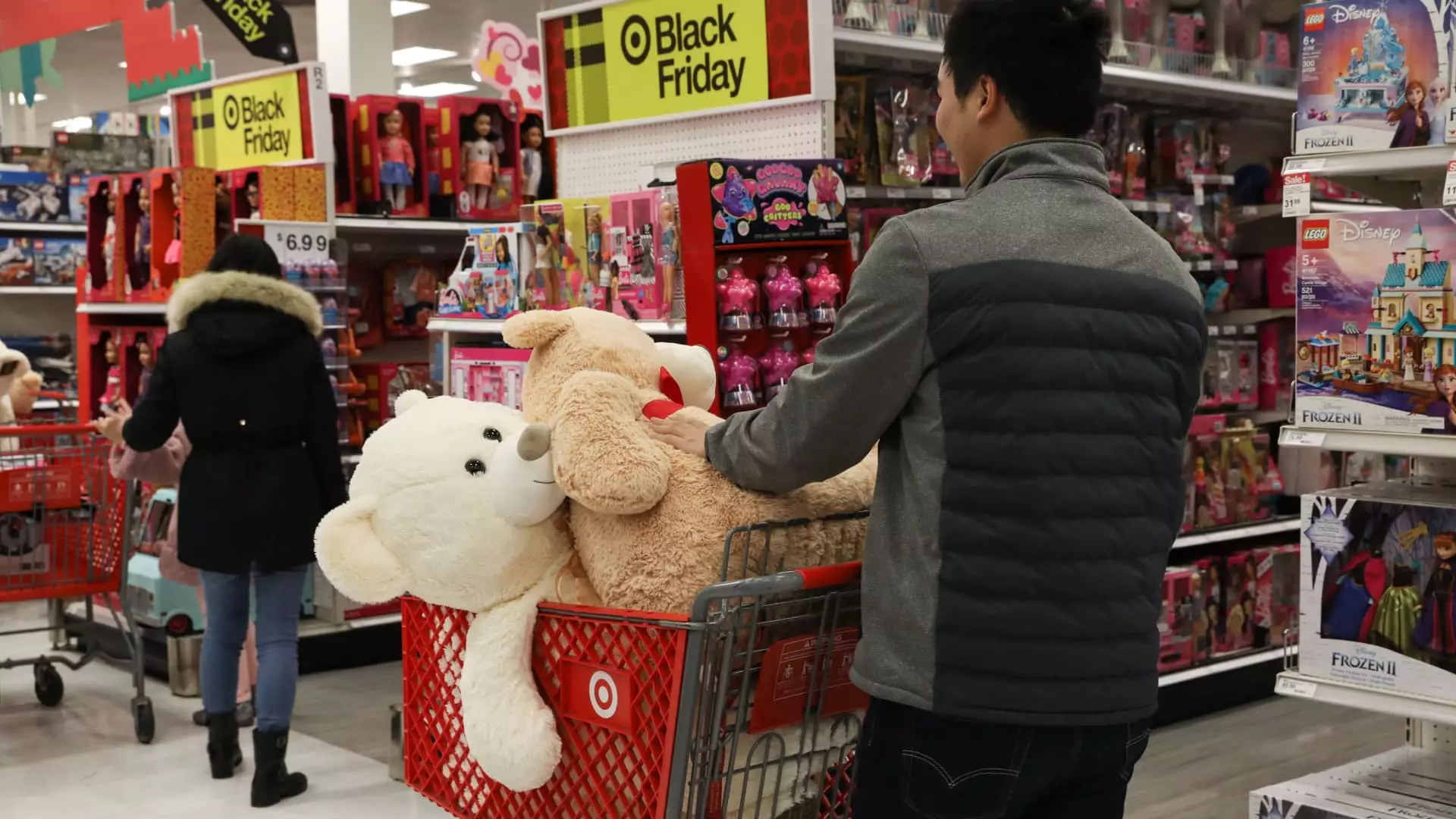The world of toys, once a vibrant and value-driven space for children and families, stands on the brink of a significant crisis, thanks to escalating trade tensions and surging tariffs. The recent announcement from President Donald Trump, enforcing extensive tariffs on various countries, specifically China and Vietnam, signals imminent price hikes that could cripple consumers, particularly those who are already stretched thin financially. Instead of being a source of joy and creativity, toys may soon become luxury items, leaving many families to grapple with the harsh financial reality.
Tariff Turbulence: A Storm Gathering Strength
The implementation of sweeping tariffs — with a staggering 54% on goods imported from China and substantial levies on Vietnam — raises critical concerns. Historically, American toy manufacturers have relied heavily on these countries for affordable production, and such drastic measures will undoubtedly disrupt the entire industry, not to mention the parental budgets. The notion that the costs can be absorbed by corporations is naive; the burden will inevitably fall squarely on consumers’ shoulders. Greg Ahearn, representing The Toy Association, encapsulates this sentiment perfectly by asserting that the ramifications will be massive — consumers and the industry alike are in for a wild ride.
Consumers Caught in the Crossfire
Families, especially those with limited financial resources, will feel the impact most acutely. The most disheartening fact is that children, who should have the right to play and engage in healthy, imaginative activities, are likely to face diminished access to toys. Ahearn highlights that pricing for toys could spiral upward, impacting, primarily, those least able to afford such increases. Data shows that about 77% of toys in the U.S. come from China, placing children’s playtime at risk of becoming a privilege rather than a universal experience.
Companies Reeling: Strategic Unraveling Ahead
Heavyweights like Hasbro and Mattel, initially bracing for a 20% tariff hit, are now grappling with even more damaging numbers. This profound uncertainty leads to stifled innovation, decreased production, and weakened market positions. A significant downturn in stock prices illustrates the market’s immediate reaction — Hasbro’s shares dropped over 12%, while Mattel plummeted more than 16%. Investors are left questioning the stability of these companies, raising doubts about their future profitability and market viability. A possible outcome is a loss of competitive edge for American companies, overshadowed by global counterparts who can navigate these disturbances with greater ease.
Global Navigation: The Asian Market Landscape
While manufacturing diversity may have seemed like a smart strategy, the new political landscape complicates matters. With tariffs soaring on not only China but also Vietnam, Indonesia, and India, the supposed safety of shifting production is crumbling. Companies might find that altering their production locations won’t yield significant cost benefits or returns. Instead, industry experts caution that companies might be forced to resort to contract renegotiations, desperately searching for ways to mitigate costs. But to what extent can they negotiate when tariffs continue to climb? In this evolving scenario, the potential for U.S. factories to emerge as the new production miracle seems increasingly unrealistic, further eroding the country’s manufacturing base.
Consumer Impact: Our Economic Dilemma
What does all this mean for the average consumer? The expectation of anywhere between 35% and potentially 50% price increases on toys is sobering. Families will have to weigh the cost of play against essentials, leading to difficult decisions for those living paycheck to paycheck. For many, the thought of their child wanting a simple toy should invoke joy, not anguish. The stark reality ahead suggests that such economic burdens could stifle children’s imaginative growth in favor of budgeting limits — ultimately shaping their formative years in unexpected and disheartening ways.
The Irony of it All: A Battle Over Play
Ironically, in the fervor of political maneuvering, the very essence of childhood seems neglected. Merchants of joy — toy manufacturers — now face becoming agents of financial strain rather than joyful purveyors of delight. In perhaps the oddest twist of this trade saga, the manipulation of toy prices stands to transform what should bring happiness into sources of frustration and alienation. Ultimately, amid rising geopolitical tensions, children are left as collateral damage; their laughter at risk of being replaced by discussions of economic pressures.
New conflicts may arise, but in this instance, it’s clear: the true victims of tariff wars are not just companies and shareholders but millions of children and their families who deserve access to the joys of childhood play.


Leave a Reply